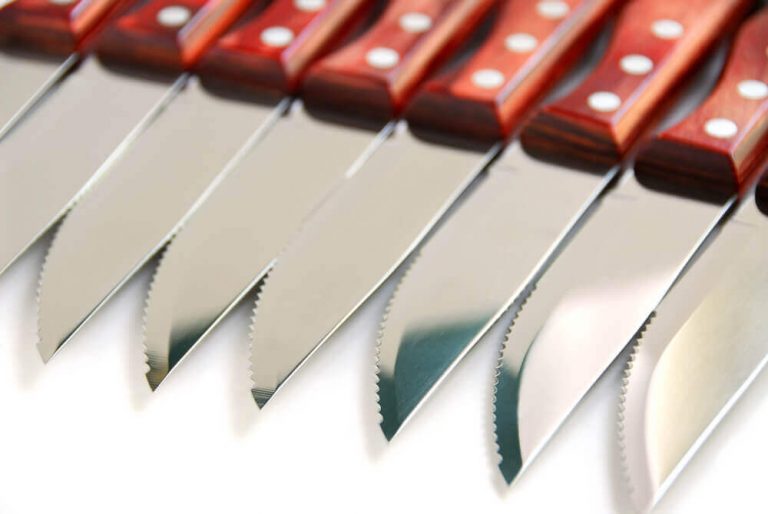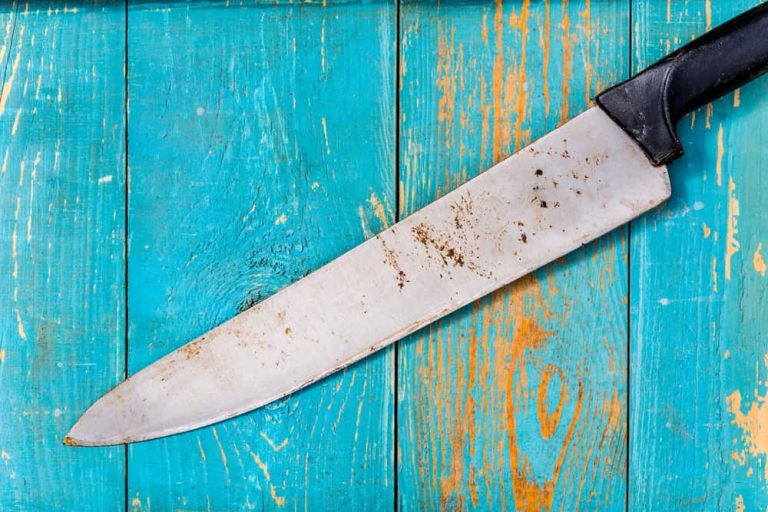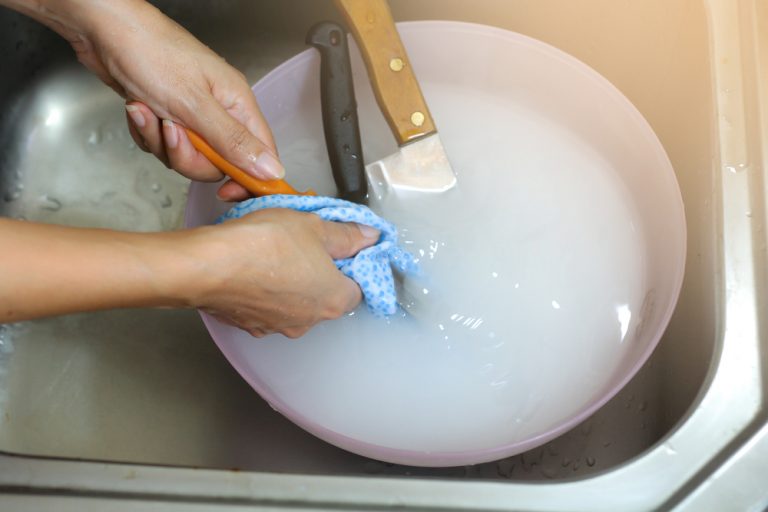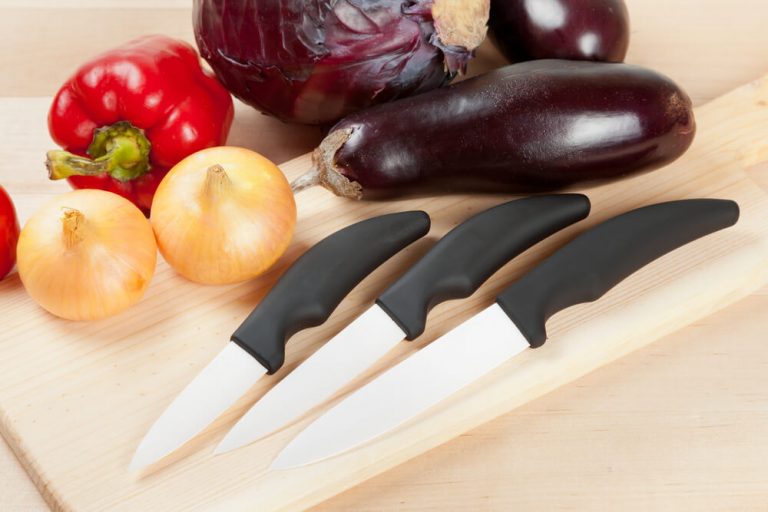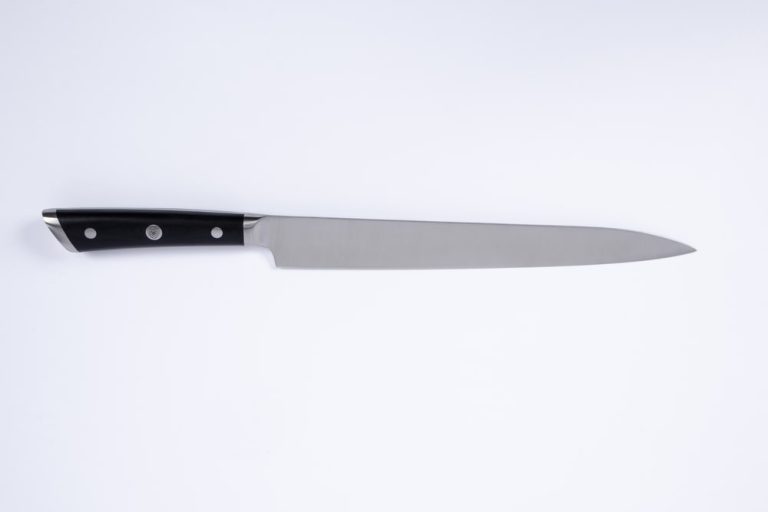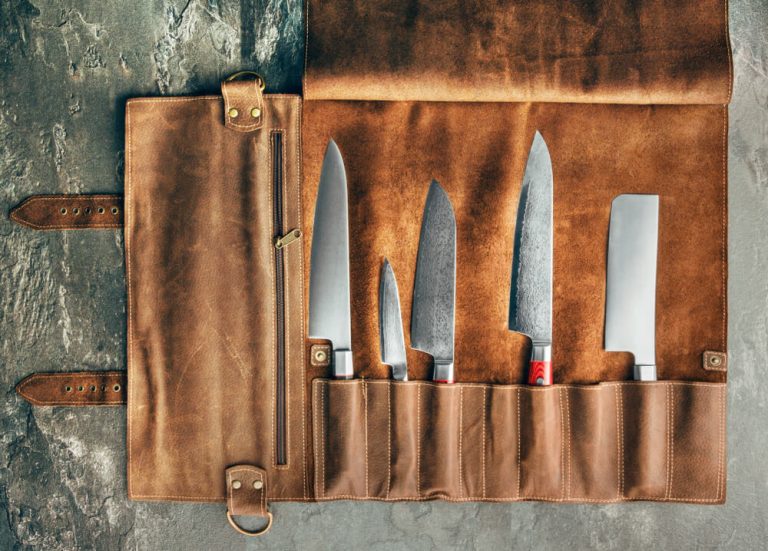For both the culinary professional and the enthusiastic home chef, the importance of high-quality knives in the kitchen cannot be overstated. A sharp, well-maintained knife is not just a tool but an extension of the chef’s hand, ensuring precision, safety, and efficiency in every slice, dice, and chop. Among the pantheon of premium kitchen knives, Wüsthof stands out as a symbol of exceptional quality, durability, and craftsmanship. Crafted with meticulous attention to detail, these German-engineered knives are not just kitchen tools; they are culinary investments that, with the right care, can last a lifetime.
The reputation of Wüsthof knives as top-tier culinary instruments comes from their high-quality materials, exceptional balance, and unparalleled sharpness. Whether it’s the iconic Classic series, the modern and sophisticated Ikon line, or any of their specialized collections, Wüsthof offers a knife that fits every cook’s needs. However, maintaining these knives requires more than just occasional sharpening; proper cleaning and maintenance are crucial to preserving their functionality and aesthetics.
Understanding this, our guide aims to demystify the process of how to clean Wusthof knives and caring for your Wüsthof knives. Through expert-endorsed techniques and simple, step-by-step instructions, we will show you how to maintain your knives’ sharpness, prevent damage, and ensure that they remain a treasured part of your culinary arsenal for years to come. From daily maintenance to deep cleaning strategies, we’re here to provide you with all the knowledge you need to protect your investment and elevate your cooking experience. Let’s embark on this journey to ensure that your Wüsthof knives not only last a lifetime but also help to create countless memorable meals.
Table of Contents
Why Proper Cleaning Is Essential for Your Wüsthof Knives
Maintaining the pristine condition of your Wüsthof knives is not just a matter of pride for any culinary enthusiast; it’s a comprehensive approach to preserving their value, ensuring optimal performance, enhancing aesthetics, and maintaining health and hygiene standards in your kitchen. Proper cleaning is at the heart of this maintenance routine, serving as the cornerstone for the longevity and reliability of these cherished tools.
Value Preservation
When you invest in high-end kitchen knives like Wüsthof, you’re investing in quality that can last a lifetime with the right care. However, this longevity depends significantly on routine cleaning and maintenance. Residues from food can contain acids or other materials that, if left unchecked, can corrode or damage the knife’s steel, leading to pitting and a compromised blade edge. By adhering to proper cleaning techniques, you not only extend the life of these knives but also preserve their value, ensuring that this culinary investment continues to pay dividends in the form of superior culinary performance for years to come.
Performance Maintenance
The connection between a knife’s cleanliness and its performance is undeniable. A clean, well-maintained blade ensures maximum sharpness, making your kitchen tasks both safer and more efficient. Bits of food and moisture left on the blade can accelerate dullness, requiring more frequent sharpening and potentially damaging the blade over time. Regular cleaning after each use prevents build-up, preserving the knife’s sharpness and ensuring it performs as expected every time you reach for it.
Aesthetic Appeal
The visual appeal of Wüsthof knives, with their sleek designs and polished finishes, is undeniable. However, aesthetics are easily marred by stains, spots, and corrosion if not properly cleaned. Regular maintenance keeps these knives looking as good as new, enhancing the overall look of your kitchen tools and allowing the beauty of their craftsmanship to shine through. For many, a well-maintained set of knives also becomes a point of pride, displayed prominently in the kitchen as a testament to the owner’s commitment to quality and care.
Health and Hygiene
Perhaps most importantly, the thorough cleaning of your knives is crucial for maintaining food safety and hygiene in the kitchen. Knives that are not properly cleaned can harbor bacteria, leading to cross-contamination between foods and potential health risks. Ensuring that your knives are clean and free from food residue is a fundamental practice in preventing foodborne illnesses, making it an essential part of your kitchen hygiene routine.
In conclusion, the importance of properly cleaning your Wüsthof knives cannot be overstated. It is a multifaceted practice that preserves the knives’ value, maintains their performance, enhances their appearance, and ensures they contribute to a safe and hygienic cooking environment.
Understanding Your Wüsthof Knives
A cornerstone of Wüsthof knives’ global reputation is the unparalleled materials and craftsmanship that go into each piece. Forged from high-carbon stainless steel, these knives are renowned for their durability, corrosion resistance, and ability to retain a sharp edge over time. The meticulous process, which involves over 40 steps in the making, ensures each knife is not only a functional kitchen tool but a piece of artistry. The balance, weight, and ergonomic handles of Wüsthof knives are designed with the user’s comfort and efficiency in mind, making them a favored choice among culinary professionals and home cooks alike.
Wüsthof’s extensive range caters to every culinary task imaginable, from the versatile chef’s knife, ideal for slicing, dicing, and chopping, to specialized tools like the fillet knife, with its flexibility perfect for delicate fish. There are also serrated bread knives that slice through crusts with ease and paring knives for intricate work like peeling and deveining. Each type of knife may have specific cleaning considerations; for example, knives with wooden handles require more care to avoid water damage, whereas those with synthetic handles are more forgiving of dishwasher use, though hand washing is recommended to maintain the blade’s integrity.
Several common misconceptions surround the cleaning of high-quality knives like those from Wüsthof. One widespread myth is that these knives are dishwasher safe. While some modern Wüsthof knives are marketed as dishwasher-friendly, the intense heat and harsh detergents can dull the blade and damage handles over time, making hand washing the superior choice. Another myth is that steel wool or abrasive cleaners are needed to keep knives in prime condition. In reality, these materials can scratch and damage the steel, underscoring the need for using soft sponges and gentle dish soap.
Understanding the composition and variety of Wüsthof knives, coupled with dispelling myths about their care, ensures that these culinary investments maintain their excellence for generations. Proper knowledge is the first step in respecting and upholding the quality that Wüsthof stands for.
Step-by-Step Guide to Cleaning Your Wüsthof Knives
Maintaining the excellence of your Wüsthof knives involves a commitment to regular care. By adhering to a meticulous cleaning, drying, and storage routine, you can ensure that these culinary tools retain their edge, beauty, and functionality for many years. Here’s a comprehensive step-by-step guide to cleaning your Wüsthof knives, including both daily maintenance and deeper cleaning processes.

Daily Cleaning Routine
- Right After Use: Clean the knife immediately after use. This prevents food from drying on the blade, which can make it more difficult to clean and potentially damage the blade’s edge.
- Rinse with Warm Water: Hold the knife under warm running water to rinse away food particles. Use your hand to gently remove any residue, always wiping away from the blade’s edge for safety.
- Use Mild Dish Soap: Apply a small amount of gentle dish soap to a soft sponge or cloth. Carefully clean the blade and handle, paying special attention to any grooves that might trap food particles.
- Rinse Thoroughly: Ensure all soap is rinsed off the knife. Remaining soap can cause the steel to tarnish and potentially affect the flavor of your food.
- Dry Immediately: Using a clean, soft towel, dry the knife thoroughly by wiping in a direction away from the blade’s edge. Moisture left on the knife can lead to corrosion or rust.
Deep Cleaning Process
- Frequency: Schedule a deep cleaning session every 2-3 months or more frequently if your knife is subject to heavy use.
- Soak in Mild Soapy Water: For a deep clean, soak the knife briefly in a mixture of warm water and mild dish soap to help loosen any tough residues. Note: Do not soak knives with wooden handles.
- Clean Tight Spaces: Use a soft-bristled brush (like a toothbrush) to gently scrub any tight spaces or crevices in the knife, such as the area where the blade meets the handle.
- Rinse and Check: Rinse the knife and check if any spots have been missed. Repeat the cleaning process if necessary.
- Dry Thoroughly: As with daily cleaning, ensure the knife is completely dry before storage.
Drying and Storage
- Proper Drying: Use a microfiber towel for drying to avoid leaving lint or scratches.
- Immediate Storage: Store your knife immediately after drying. Use a knife block, magnetic strip, or protective sheath to prevent the blade from dulling. Make sure the storage method keeps the blade suspended or protected to avoid any damage.
- Avoid Moist Environments: Store knives in a dry area to prevent moisture accumulation, which could lead to rust.
Advanced Tips for Maintaining Your Wüsthof Knives
Mastering the art of maintaining your Wüsthof knives goes beyond regular cleaning; it encompasses honing, sharpening, and recognizing when it’s time to seek professional help. Equally important is being aware of common pitfalls that can lead to damage, ensuring your culinary tools remain in top condition.
Honing and Sharpening: Understanding the Difference
Honing: Using a honing steel, honing realigns the edge of the knife, correcting any microscopic bends. It should be done regularly, even before each use, to maintain the blade’s sharpness. Honing doesn’t remove material from the blade; instead, it straightens the existing edge, keeping it razor-sharp.
Sharpening: This process actively removes material from the blade to create a new edge. It can be achieved with a whetstone, sharpening rod, or electric sharpener. Sharpening is less frequent than honing—only required a few times a year, depending on the usage—to restore the blade’s cutting ability.
When to Opt for Professional Maintenance
While honing and basic sharpening can be carried out at home, some situations warrant professional attention.
Regular Maintenance: For an optimal edge, consider professional sharpening annually. Professionals can also assess and repair any damage, ensuring your knife’s longevity.
Repairing Damage: If your knife chips or the blade becomes significantly dull, a professional can restore it to its former glory, often employing techniques and tools not commonly available to home cooks.
Common DIY Mistakes to Avoid
- Using the Wrong Tools: Avoid using honing steels or sharpeners not suited for your knife type, as they can damage the edge.
- Over Sharpening: Excessive sharpening can wear down your knife prematurely. Be judicious about how often and aggressively you sharpen.
- Ignoring the Angle: Each knife has a specific angle at which it should be honed and sharpened. Ignoring this can lead to an ineffectively sharpened knife or even damage the edge.
- Neglecting Handle Care: For knives with wooden handles, avoid soaking them in water or exposing them to extreme temperatures, as this can cause warping or cracking.
Advanced care ensures your Wüsthof knives remain not just tools, but culinary companions, lending precision and joy to every culinary venture.
Product Recommendations and Reviews
When it comes to upholding the pristine condition of your Wüsthof knives, selecting the right cleaning products and storage solutions is crucial. Your choice can significantly impact the longevity, sharpness, and safety of these culinary investments. Below, find carefully curated recommendations to aid in the maintenance of your Wüsthof knives, ensuring they remain in top condition year after year.
Safe Cleaning Products

For Wüsthof knives, the choice of cleansers is paramount in preventing damage to the blades and handles.
Mild Dish Soap: Opt for gentle, phosphate-free dish soaps. Brands like Seventh Generation Free & Clear or Dawn Ultra Gentle Clean are excellent choices, effectively cleaning without harsh chemicals.
Natural Cleaners: For a more eco-conscious option, consider using a mixture of warm water and baking soda or white vinegar. These natural solutions can help remove stubborn residues safely.
Cleaning Tools
Utilizing the proper tools to clean your knives can prevent scratches and abrasions.
Soft Sponges: Choose non-abrasive sponges, such as the Scotch-Brite Non-Scratch sponge, to clean the blade effectively without scratching the metal.
Microfiber Cloths: For drying, a high-quality microfiber cloth is gentle on the knife’s surface, absorbing moisture without leaving lint.
Soft-Bristled Brushes: A brush like the OXO Good Grips Dish Brush can be ideal for reaching into the crevices of knife handles or for gently scrubbing blade surfaces when necessary.
Storage Solutions
Proper storage is not just about organization; it’s about protecting the blade’s edge and ensuring safety.
Knife Blocks: A wooden or bamboo knife block that accommodates various knife sizes is a classic and effective storage solution. Wüsthof offers a range of blocks that are specifically designed to fit their knives, ensuring each piece is securely and safely stored.
Magnetic Strips: For kitchens with limited counter space, a magnetic knife strip like the Walnut Magnetic Knife Holder by Kurouto keeps knives accessible while safely secured. Ensure the magnet is not so strong that it risks damaging the knife as you pull it away.
Blade Guards: If drawer storage is preferred, consider using blade guards to protect the edges. Wüsthof’s Blade Guard is designed to shield the edge and can be a good option to prevent knives from banging against other utensils.
Adhering to these product recommendations can significantly enhance your experience with Wüsthof knives, ensuring they remain clean, sharp, and beautiful for years to come. Proper care and maintenance are fundamental to enjoying the full potential of these exceptional culinary tools.
Expert Insights
Gleaning wisdom from culinary experts and seasoned professionals offers invaluable insights into the care and longevity of premium knives like those from Wüsthof. Christine Lewis, a professional chef with over two decades of experience, shares, “The secret to a knife that lasts a lifetime isn’t just in how often you sharpen it, but in the daily rituals of cleaning, drying, and storing it properly.” She emphasizes the importance of immediate cleaning and drying to prevent moisture-induced damage, a principle echoed by many in the culinary field.
Johannes Wüsthof, a representative from the esteemed knife manufacturer, highlights the significance of using the right tools for maintenance. “Using a honing steel suited for our knives can make all the difference in maintaining the blade’s edge,” he notes. Wüsthof also recommends professional sharpening services annually to correct any imperfections that everyday use may introduce.
A testament to the value of proper care comes from Mark Anderson, a Michelin-starred chef, who recalls inheriting his grandmother’s set of Wüsthof knives. “These knives have seen two generations of family meals and countless culinary adventures,” Anderson shares. “Their enduring sharpness and resilience are a testament to the meticulous care my grandmother invested in them.” This story underlines the profound impact that thoughtful, regular maintenance can have on extending the life and enhancing the performance of premium knives.
Taken together, these expert insights underscore a universal truth: investing time in the proper care of your Wüsthof knives is not just about maintaining a tool but preserving a legacy of culinary excellence that can last generations.
FAQs
Q: Can I put my Wüsthof knives in the dishwasher?
A: While Wüsthof claims certain knives are dishwasher safe, it’s strongly recommended to hand wash your knives. Dishwashers can cause knives to bang against other items, dulling the blade, and harsh detergents can damage the handle and blade over time.
Q: How often should I hone my Wüsthof knives?
A: Honing should be done regularly, depending on usage, ideally before each use. This realigns the blade’s edge and maintains its sharpness.
Q: What’s the best way to sharpen my Wüsthof knives?
A: For sharpening at home, use a whetstone or a manual handheld sharpener designed for Wüsthof knives, following the manufacturer’s angle guidelines. Consider professional sharpening once a year for optimal performance.
Q: How should I store my Wüsthof knives to keep them sharp?
A: Store your knives in a knife block, on a magnetic strip, or with blade guards if kept in a drawer. Avoid loose storage with other utensils to prevent damage to the blade edges.
Q: What should I do if my knife gets rust spots?
A: Minor rust spots can be removed with a gentle cleaner and a non-abrasive pad. To prevent rust, make sure to dry your knives thoroughly before storing and avoid letting them sit in moisture.
Q: Is it necessary to use a specific cleaner for my knives?
A: No, a mild dish soap and warm water are sufficient for cleaning your knives. Avoid using pads or cleansers with abrasives that could scratch the blade.
Conclusion
In this comprehensive guide, we’ve traversed the essentials process of how to clean Wusthof knives and caring for your Wüsthof knives. From daily cleaning routines to deep cleaning processes, and underscored the importance of proper storage solutions. We’ve differentiated between honing and sharpening, urged the adoption of professional services when necessary, and spotlighted common DIY mistakes to avoid. Our journey through expert insights and FAQs provided actionable advice to ensure the longevity and performance of your prized culinary tools.
We encourage you to adopt a consistent knife care routine, honoring the craftsmanship of your Wüsthof knives. As you implement these practices, share your journey—what worked, what you learned, and any personal tips you’ve discovered along the way. Your experiences not only enrich your culinary endeavors but also contribute to a community of like-minded enthusiasts committed to the art of precision in the kitchen. Let’s keep the conversation going and continue to elevate our culinary experiences, one well-maintained knife at a time.


